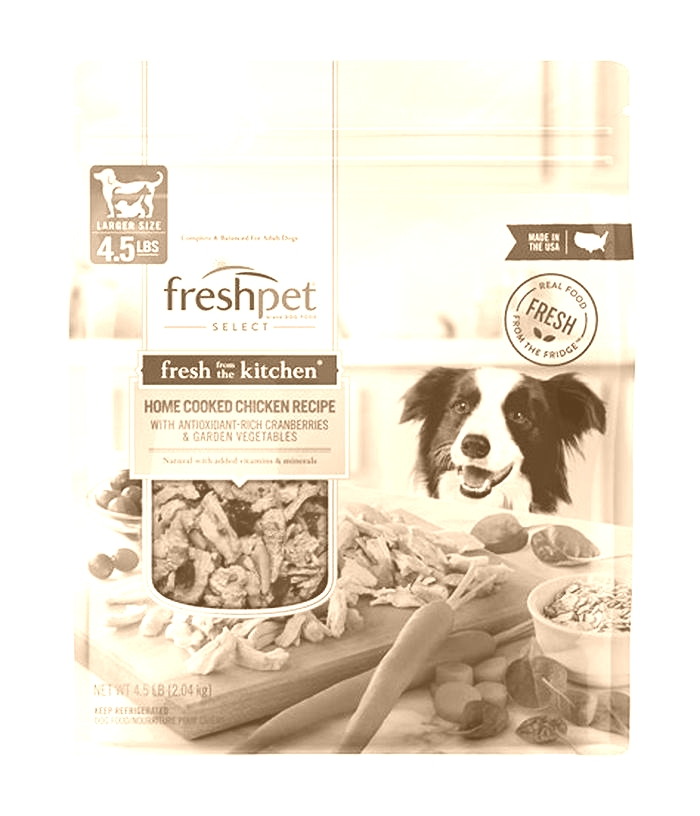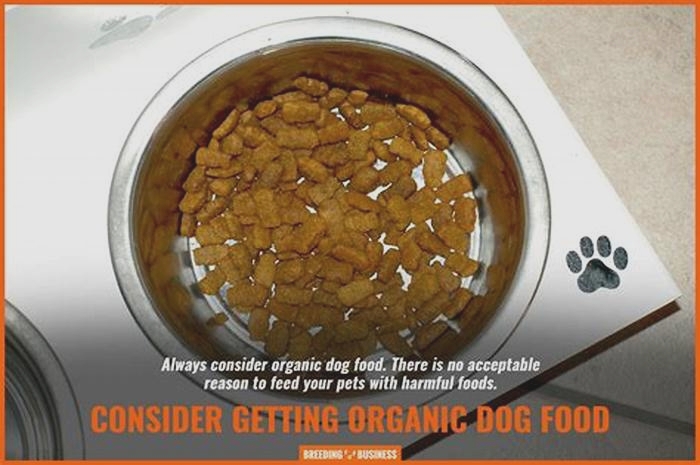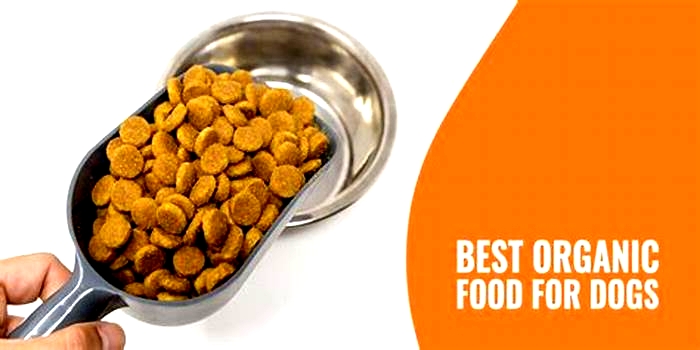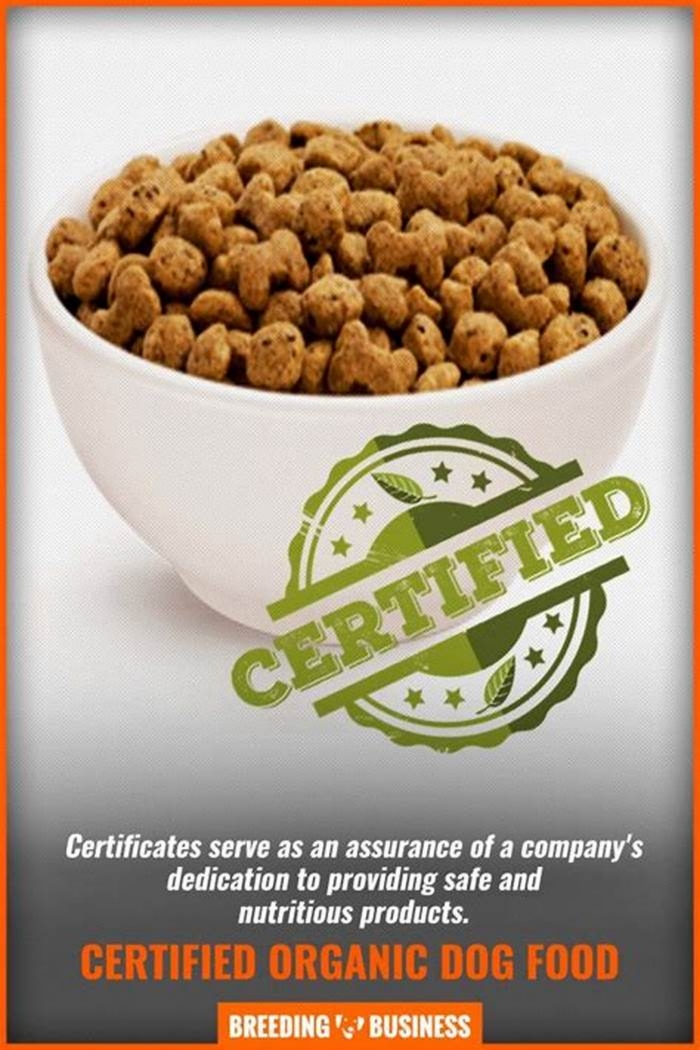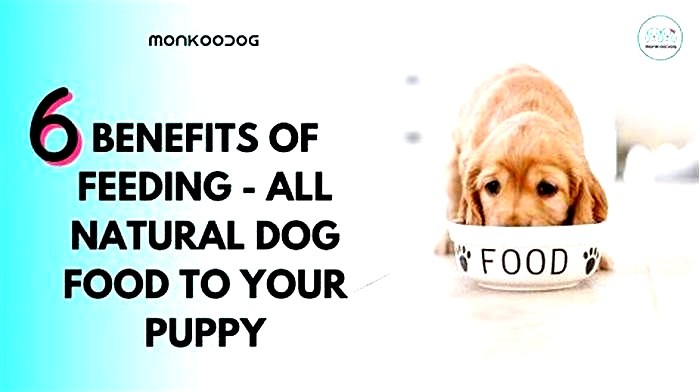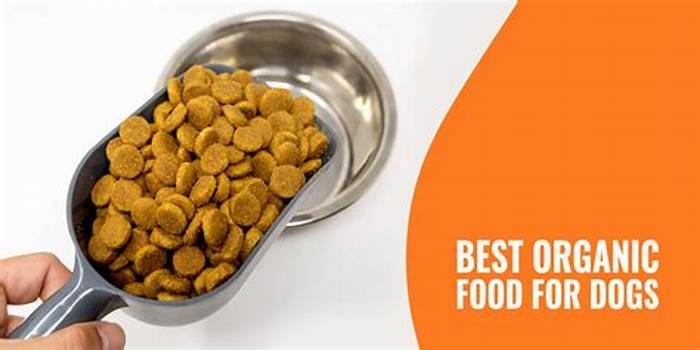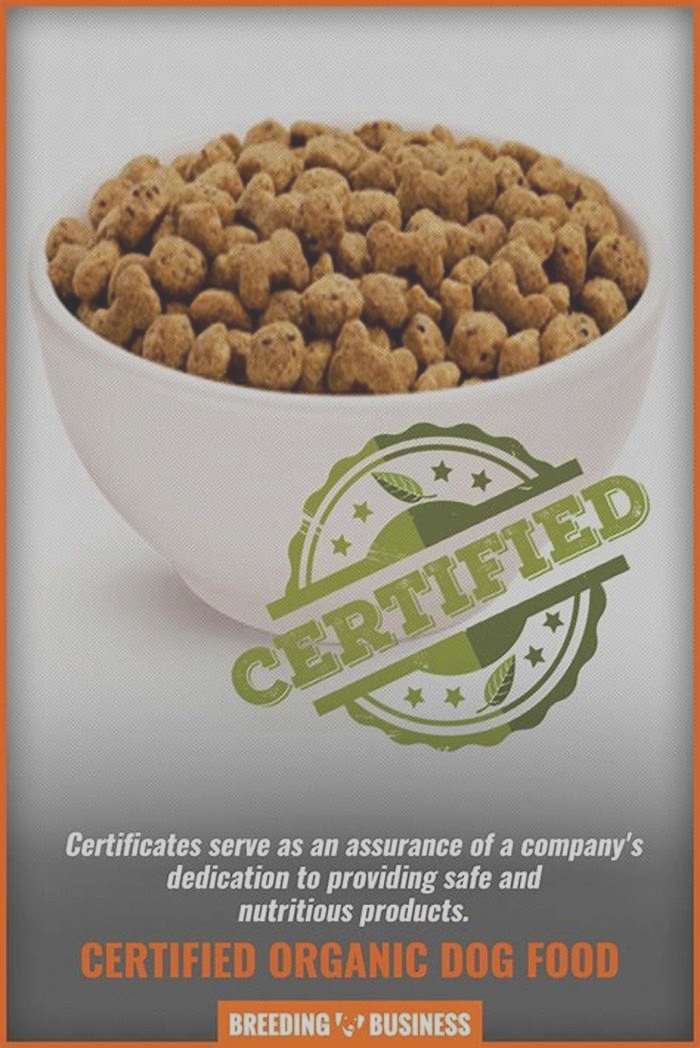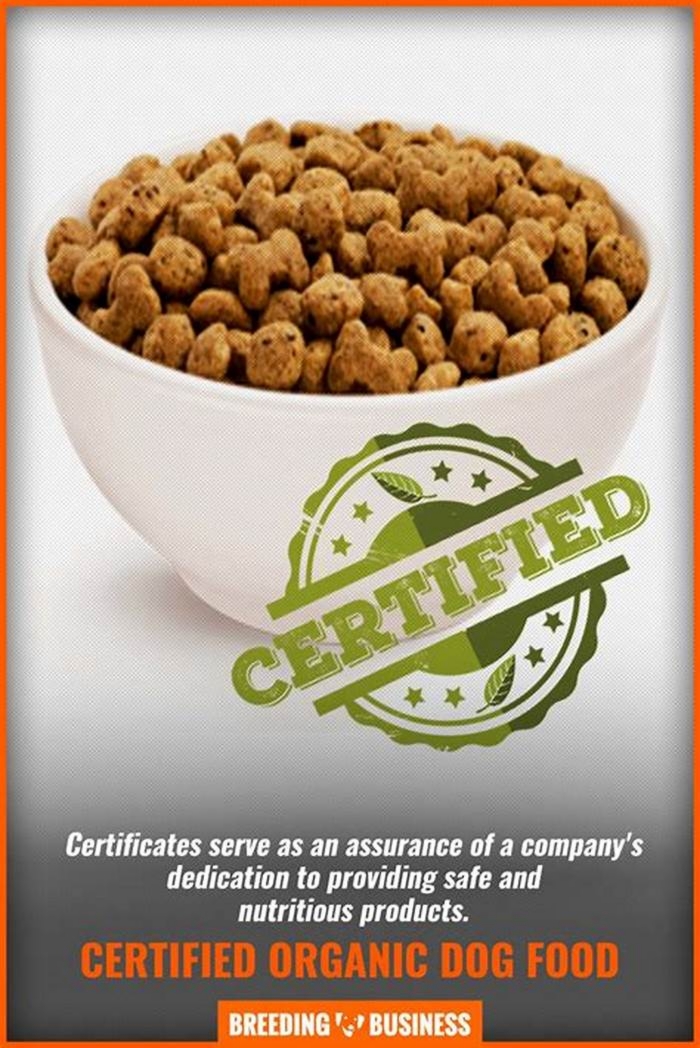What does organic mean in dog food
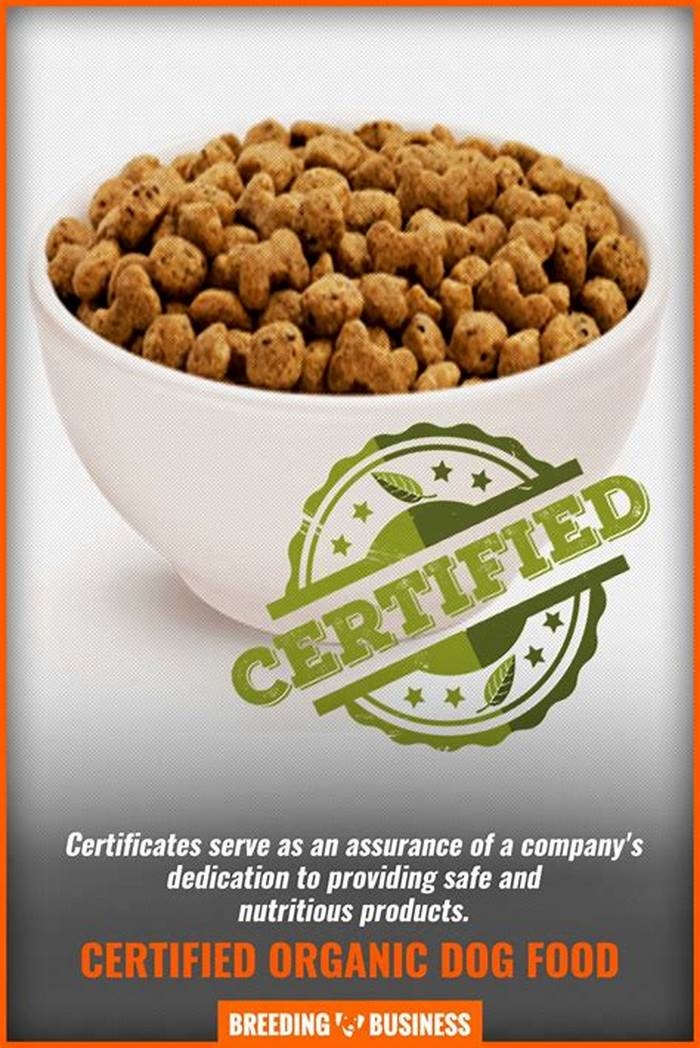
What Is Organic Dog Food?
You might think that organic foods are top-tier and better than nonorganic food. And if organic food is better for people to eat, is it the same for dogs? What does it actually mean if a dog food is organic?
This article will help you interpret dog food labels related to organic dog food, whether its 100% organic or made with some organic ingredients.
What Makes a Dog Food Organic?
The United States Department of Agriculture (USDA) has not yet defined organic specifically as it relates to use of ingredients in pet foods. According to the USDAs National Organic Program (NOP), pet foods claiming to be organic must meet its human food regulations.
And according to the Food and Drug Administration (FDA), There are no official rules governing the labeling of organic foods for pets at this time, but the USDA is developing regulations dictating what types of synthetic additives, such as vitamins and purified amino acids, may be used in pet foods labeled as organic.
However, you may see still see the term organic on pet foods that are made with ingredients that are produced using standard organic practices as these regulations for pet food develop.
What Does Organic Mean?
Organic is a term used to describe food ingredients, for human consumption or for feed for food-producing animals, including meat, produce, and multi-ingredient processed foods, that are grown, raised, or produced according to a specific set of guidelines defined by the United States Department of Agriculture (USDA). These federal guidelines cover a wide range of factors.
Organic Plants
For organic plants, the guidelines relate to:
Not using certain prohibited synthetic pesticides or fertilizers
Not using genetically modified seeds
Preventing GMO contamination on the farm
Organic Meat-Producing Animals
For organic meat-producing animals, the guidelines include:
Raising the animal in living conditions that accommodate its natural behaviors
Feeding organic feed
Not using antibiotics or hormones
Processing the meat product prior to packaging in a certified facility to avoid contact with any prohibited substances
Organic Multi-Ingredient Processed Foods
Finally, for organic multi-ingredient processed foods, the guidelines relate to the exclusion of artificial flavors, colors, or preservatives; however, some approved nonagricultural ingredients may be included.
No, not all dog foods have the USDA organic seal.
There are a variety of different labels that you might see on a bag or can of dog food as they relate to organic ingredients. These are the three main categories that you might come across.
100% Organic
For a multi-ingredient food such as dog food to be considered 100% organic, the product must be composed of 100% USDA certified organic ingredients.
The label must include the name of the organic certifying agent (e.g., certified organic by) and may bear the USDA certified organic seal as well.
In the ingredient list, you may see the term organic preceding each organic ingredient or an asterisk following such ingredients that is referenced below the ingredient list.
Organic: 95% Organic Ingredients
Many organic dog foods fall into this category of general organic food.
In this category, at least 95% of the ingredients must be certified organic. No more than 5% of the ingredients may be nonorganic ingredients found on the National List of Allowed and Prohibited Substances.
These types of products must also include the name of the organic certifier on the label, and you may also see the USDA certified organic seal.
Made With Organic _______: 70% Organic
Finally, you may see a dog food product label that states, made with organic Such products must contain at least 70% organic ingredients.
In this case, the overall product cannot be labeled as organic, and as such, you will not find a USDA certified organic seal, but the name of the organic certifier must be on the label.
Only up to three ingredients or ingredient categories in the ingredient list can be labeled as organic, and similar to the above-mentioned category, any nonagricultural ingredients included must be on the National List of Allowed and Prohibited Substances.
What's the Difference Between Organic Dog Food and Natural Dog Food?
In contrast to the term organic, which applies to the production and handling requirements for specific ingredients in pet food, natural is an extremely broad term.
The Association of American Feed Control Officials (AAFCO), defines natural as follows:
"A feed or ingredient derived solely from plant, animal or mined sources, either in its unprocessed state or having been subjected to physical processing, heat processing, rendering, purification extraction, hydrolysis, enzymolysis, or fermentation, but not having been produced by or subject to a chemically synthetic process and not containing any additives or processing aids that are chemically synthetic except in amounts as might occur unavoidably in good manufacturing practices.
Essentially, an unnatural ingredient is a chemically synthesized ingredient and can include things such as added:
Vitamins
Minerals
Preservatives
Artificial flavoring
Many ingredients used in pet foods, organic or not, can claim to be natural because they are derived from plant, animal, or mined sources.
Is Organic Dog Food Better?
To date, there is no convincing research in humans confirming a significant nutritional difference in foods produced conventionally or via organic farming practices, and no such studies comparing the nutritional content and potential health effects of organic dog food have been performed in dogs.
While there may be some small increases in certain nutrients such as antioxidants or fatty acids in some organic ingredients, a dog food thats formulated to be complete and balanced according to AAFCO requirements already meets your dogs minimum essential nutrient needs (and often exceeds the minimum). So, an increased amount of a specific nutrient provided by an organic ingredient is not necessarily better for health or nutrition.
Important aspects to evaluate on a label regarding a dog foods nutrient qualityinclude:
AAFCO statements that ensure that the product meets AAFCO nutrient profiles for a specific life stage
Whether an AAFCO feeding trial has been performed
Whether the food is only intended for intermittent and supplemental feeding (meaning that it is not complete and balanced and cannot be fed as a regular diet)
The product should also contain the manufacturers name and contact information, so that you or your veterinarian are able to contact them if you needed to ask questions about:
When in doubt, your dogs veterinarian or a board-certified veterinary nutritionist is your best resource in choosing the right food for your dogs individual needs.
Featured image: iStock.com/YakobchukOlena
Is Organic Dog Food Better?
Is organic dog food better than regular dog food? We often see the term organic in large font on food packaging and assume its the healthier option. But many people arent entirely sure what the term means and if not understood then we cant really determine if organic dog food is better for your pet.
Naturally, you want to know the healthiest food to feed your dog. But all dogs are unique, and certain ingredients will be suited to different dogs. So, if youre wondering whether organic meat and vegetables are better for your dog and what the benefits of organic dog food are, then this article is here to help.
What does organic mean?
When you see the term organic on a food label, its USDA-certified which means the food was grown and processed according to federal guidelines. These guidelines consider many factors including soil quality, animal raising practice, pest and weed control, and use of additives.
This means organic producers rely on natural substances and physical, mechanical, or biologically based farming methods to the fullest extent possible. 1
Organic farmers aim to produce high-quality food by using methods that benefit the whole food system. Its a farming method aimed to help people to the planet and plant health to animal welfare this is why many consider it a more sustainable alternative when it comes to food production.
What makes dog food organic?
Similarly, organic dog food is made from ingredients grown without pesticides, synthetic fertilizers, sewage sludge, genetically modified organisms (GMOs), or ionizing radiation.
For organic meat, the animals must be raised in living conditions that accommodate their natural behaviors. They are fed organic food, and must not have been fed antibiotics or growth hormones.
Certified organic foods will display a USDA organic seal and must be made of at least 95% organic ingredients. 2
What are the three types of organic dog food?
According to the USDA, there are three types of organic dog food, and this will impact how theyre labeled. They are:
100% Organic
100% organic food is what it sounds like made with 100% organic ingredients. When reading the label, you will see the term certified organic by and it potentially may have the USDA-certified organic seal. Most likely, the label will be placed proudly on the front of the dog food.
Organic
This organic dog food is made with at least 95% organic ingredients and is the most popular kind on the market. The majority of the ingredients must be organic and no more than 5% may be non-organic ingredients (and these must be found on the National List of Allowed and Prohibited Substances).
Made with Organic Ingredients
This means the food is made with a minimum of 70% organic ingredients with strict restrictions on the remaining 30% (including no GMOs).
Its important to note that dog foods containing less than 70% organic ingredients may not display organic claims prominently on the front of the packaging but may include them on the side.
Whats the difference between organic dog food and natural dog food?
Organic dog food often gets confused with natural dog food. Natural dog foods are free of artificial additives, like preservatives or coloring and flavoring agents.
Organic foods are not only free of additives, but are also produced without the aid of pesticides, herbicides, or antibiotics.
Why is organic food good for dogs?
Like humans, dogs can be affected by pesticides and antibiotics, which have been linked to various health issues including diseases and digestive problems. Organic food, free from pesticides and antibiotic exposure, offers a potentially healthier alternative for you and your dog.
Is organic dog food better?
Organic dog food can be a healthy option for your pet but they dont need to go organic to be a healthy dog. While there may be some benefits in certain nutrients such as antioxidants or fatty acids that organic food contains, there isnt a huge difference in the health benefits between it and regular dog food.
Dog food thats formulated according to the AAFCO requirements to be complete and balanced already meets your dogs essential nutrient needs so it is not necessary to go organic to have a healthy dog.
However, organic food contains fewer pesticide residues and can be a more environmentally conscious option, so it depends on whats important to you and your dog and what you can afford.
Is organic food more expensive?
Organic dog food tends to be more expensive than other dog foods so many pet parents understandably dont make the switch. If you are wondering why organic dog food is expensive, here are some of the reasons:
- Organic farmers dont receive federal subsidies like some conventional farmers
- Organic farming is more costly than regular farming
- Organic farms are typically smaller so theyre not able to benefit from the economies of scale enjoyed by larger growers. 3
Ultimately, your dog doesnt need organic food to be healthy so its just the personal preference. You might find the ingredients are suited to your dog and you might not every dog is unique and the same applies to their diet.
If youre thinking of trying organic food, we have a list of our top-rated ones here to help you.
What Does "Organic" Actually Mean? Here's How to Decode the USDA Label, According to a Nutritionist
You see the word "organic" thrown around everywhere these days whether it's on food, clothing, beauty products, and more. But what does it actually mean to call something organic? The U.S. Department of Agriculture National Organic Standards Board defines the term as this:
"Organic" is a labeling term that denotes products produced under the authority of the Organic Foods Production Act. The principal guidelines for organic production are to use materials and practices that enhance the ecological balance of natural systems and that integrate the parts of the farming system into an ecological whole.
Okay ... So what does that definition actually mean for you? Here's what you really need to know about buying and eating organic food.
What exactly does organic mean?
To label a food as organic, it must meet the guidelines set by the USDA. These include:
- Not using prohibited substances (most synthetic fertilizers and pesticides) for three years prior to harvest
- Not using genetically modified organisms (GMOs)
- Raising animals in living conditions accommodating their natural behaviors (like grazing on pasture), feeding them 100% organic food, and not administering antibiotics or hormones
- Omitting artificial preservatives, colors, or flavors from multi-ingredient, processed foods with some exceptions, like baking soda in baked goods
Organic agricultural production still uses pesticides and herbicides that USDA's organic certification standards have okayed. Just because something is labeled "organic" does not mean that no pesticides or herbicides were used. It simply means that the ones applied met the USDA's production standards for the term.
The definition of organic also limits the use of "genetically modified organisms." GMO crops have been genetically altered to withstand the application of herbicides and pesticides chemicals that protect harvests from viruses and bugs. The introduction of GMOs into the food supply sparked a debate over their health and environmental implications. Anything bearing the USDA Organic Seal is automatically non-GMO.
What does organic food mean?
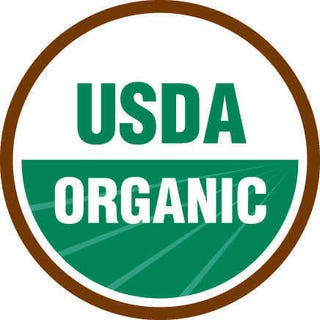
Contrary to popular belief, organic food relates back to agricultural production, not a specific nutrition- or health-related guideline. For a product to carry the USDA organic label, a third party must verify at least 95% of the ingredients as organic. The phrase "made with organic ingredients" means at least 70% of the ingredients used counted as organic.
Foods can still be organic even if they're not labeled as such. Since the standard requires third-party verification, there's a cost associated with the certification process. Food companies must consistently provide back-up documentation in order to use the "USDA Organic" seal. That makes it less desirable to smaller or newer brands that use organic production practices, but don't want to incur the costs of verification.
Is organic food really better?
Despite controversial headlines about this labeling claim, the agricultural practice used to produce food does not determine how nutritious it is for you, nor does it directly impact your state of health. Case in point: Organic cane sugar is still sugar. The nutrients you'll find within the food are what, over time, predominantly affect your health not the growing methods used to make it. Also, organic products will cost more than their non-organic counterparts, which is a critical consideration for most of us on a budget.
There's also the question of whether or not genetically modifying crops are harmful to health. But to date, there's no substantial data to imply that GMO crops available on the consumer market pose a direct risk.
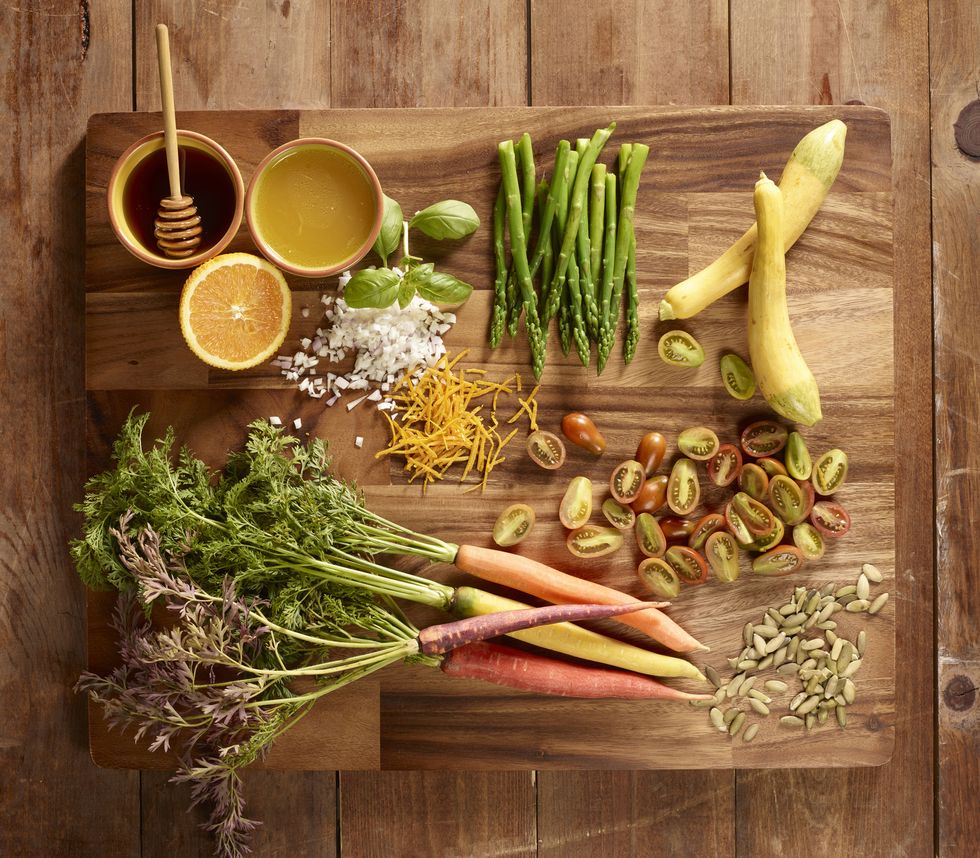
Does organic mean healthy?
Short answer? No. Growing methods do not universally make foods better or worse for you nutritionally. This is especially true when you consider eating a balanced diet overall. For example, USDA Organic beef is grass-fed, which implies that you'll find slightly more omega-3 fatty acids in it compared to conventionally raised cattle. But if you're also regularly consuming seafood, then you're already getting the omega-3's you need.
When you see alarmist headline about a specific pesticide used in conventional agriculture, it's almost always talking about exposure through proximity (i.e., field work), not ingesting the foods we eat. Some population studies show a correlation between buying organic food and better health, but it's important to consider the other factors that buying organic implies, including lifestyle and socioeconomic status. Since there's no specific, isolated link between the two, we simply cannot use the term "organic" to imply "healthy" despite the fact that it's often marketed as such.
As for GMOs and your health? The most recent and comprehensive National Academy of Sciences report states that although genetically modified crops may vary in nutritional composition, the variation is no more than what would occur naturally among non-GMO crops. The report also analyzed data from large-scale studies since GMOs entered the food supply in the '90s, but did not find any associations with chronic disease incidence and dietary patterns.
The biggest issue with GMOs from a nutritional standpoint is the products in which theyre usually found: highly processed foods and beverages. The most predominant GMO crops corn and soybeans can go in packaged foods loaded with added sugar (e.g., sugary beverages made with corn syrup) and saturated fat.
Is anything really organic?
In food, yes. That's because the USDA requires companies to follow certain agricultural practices before getting verified. But in other types of products, that's not necessarily the case.
The Bottom Line: While we still don't know everything about GMOs and organic growing practices, there is one thing about this debate I can say with confidence: It's more important to know exactly what foods are wholesome, nutritious, and health-promoting overall rather than focusing on a specific label claim.

A registered dietitian with a Bachelor of Arts degree from Northwestern University and a Master of Science degree in Clinical Nutrition from New York University, Jaclyn Jackie London handled all of Good Housekeepings nutrition-related content, testing, and evaluation from 2014 to 2019. Prior to joining GH, she was a clinical dietitian at Mount Sinai Hospital. Jackie has also appeared as an expert guest on The Dr. Oz Show and The Today Show. She is also author of the book Dressing on the Side (and Other Diet Myths Debunked).

